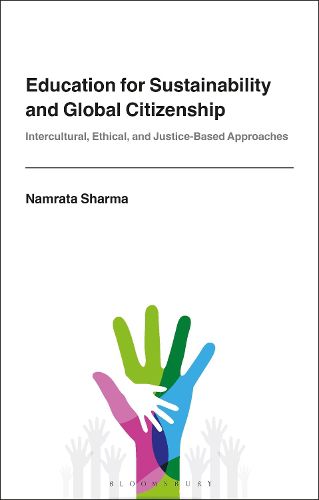Readings Newsletter
Become a Readings Member to make your shopping experience even easier.
Sign in or sign up for free!
You’re not far away from qualifying for FREE standard shipping within Australia
You’ve qualified for FREE standard shipping within Australia
The cart is loading…






How do we address teaching for sustainability and global citizenship for social-ecological justice based on alternative paradigms?
This book addresses the implications of the environmental crisis on formal, non-formal and informal education from a human rights position. The author introduces a pedagogical approach called 'value-creating global citizenship education' from a study of selected Asian perspectives, building on the UN sustainable development goals, and beyond. The key focus is to develop resilience and hope through engaged relationships between learners and their environments. Examples are drawn from Indigenous knowledge, diverse ecological worldviews and practices including the Earth Charter, the Soka Amazon Institute, and the United Nations Harmony with Nature Knowledge Network that promotes Earth Jurisprudence. The book offers practical solutions for planetary citizenship for educators and policymakers, including teaching and curriculum guidelines that can be used to integrate intercultural perspectives and develop a global outlook.
$9.00 standard shipping within Australia
FREE standard shipping within Australia for orders over $100.00
Express & International shipping calculated at checkout
How do we address teaching for sustainability and global citizenship for social-ecological justice based on alternative paradigms?
This book addresses the implications of the environmental crisis on formal, non-formal and informal education from a human rights position. The author introduces a pedagogical approach called 'value-creating global citizenship education' from a study of selected Asian perspectives, building on the UN sustainable development goals, and beyond. The key focus is to develop resilience and hope through engaged relationships between learners and their environments. Examples are drawn from Indigenous knowledge, diverse ecological worldviews and practices including the Earth Charter, the Soka Amazon Institute, and the United Nations Harmony with Nature Knowledge Network that promotes Earth Jurisprudence. The book offers practical solutions for planetary citizenship for educators and policymakers, including teaching and curriculum guidelines that can be used to integrate intercultural perspectives and develop a global outlook.